Imagine the Sound is a canadien film of genre Documentary
Imagine the Sound (1981)
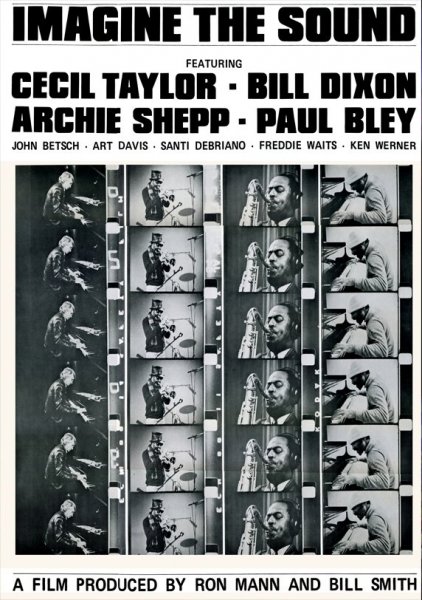
If you like this film, let us know!
Length 1h30
OriginCanada
Themes Films about music and musicians, Documentary films about music and musicians, Documentaire sur une personnalité, Jazz films, Musical films
Rating69%










Imagine the Sound is a 1981 Canadian documentary film about free jazz, directed by Ron Mann. It features interviews with and musical and dramatic performances by pianist Cecil Taylor, saxophonist Archie Shepp, trumpeter Bill Dixon and pianist Paul Bley. The film has been digitally restored and was screened at the 2007 SXSW festival in Austin, Texas.
It was filmed in Toronto. The interviews are conducted by Bill Smith.
Comments
Leave comment :
Suggestions of similar film to Imagine the Sound
There are 14621 with the same cinematographic genres (including 701 with exactly the same 2 genres than Imagine the Sound), 8313 films with the same themes (including 26 films with the same 5 themes than Imagine the Sound), to have finally 70 suggestions of similar films.If you liked Imagine the Sound, you will probably like those similar films :
 , 1h36
, 1h36Origin USA
Genres Documentary, Musical
Themes Films about music and musicians, Documentary films about music and musicians, Documentaire sur une personnalité, Documentary films about cities, Jazz films, Musical films
Rating68%





Contemporary New Orleans jazz musicians discuss their childhood introductions to music in Baptist churches and through local traditions like second line (parades) and Jazz Funerals, and the role of Danny Barker in keeping traditional New Orleans Jazz alive through the 70’s and 80’s. Asking the artists point blank, director Darren Hoffman explores the potential “death” of traditional jazz through modernization and marginalization and its preservation through mentorship and the continuation of traditions that intrigue and inspire young people to play the music of previous generations.

The Cry of Jazz (1959)
, 34minutesOrigin USA
Genres Documentary, Musical
Themes Films about music and musicians, Documentary films about music and musicians, Documentaire sur une personnalité, Documentary films about cities, Jazz films, Musical films
Actors Melinda Dillon
Rating61%





The Cry of Jazz is set in Chicago at the meeting of a jazz appreciation club of musicians and intellectuals, both Black and White. It is broken up into seven parts. Parts one, three, five, and seven center around conversations between the jazz club members. Parts two, four, and six are done in a documentary style and utilize footage of life in Chicago as well as of Sun Ra’s band performing the music. Alex, the film’s main character, serves as narrator during these sections. Although the film is nominally about jazz, jazz is utilized primaily as a metaphor through which to understand the African American experience.

A Great Day in Harlem (1994)
, 1hOrigin USA
Genres Documentary, Historical, Musical
Themes Films about music and musicians, Documentary films about music and musicians, Documentaire sur une personnalité, Documentary films about cities, Jazz films, Musical films
Actors Quincy Jones, Marian McPartland
Rating73%





En 1958, Art Kane, alors photographe debutant de "Esquire", reussit un beau matin d'ete a reunir devant un immeuble de Harlem cinquante-sept musiciens de jazz. Dans la foule on reconnait Count Basie, Lester Young, Gerry Mulligan, Dizzy Gillespie, Thelonious Monk, Roy Eldridge, Sonny Rollins, Charles Mingus, Art Blakey, Art Farmer, Gene Krupa, Rex Stewart, Jo Jones, Hank Jones, Johnny Griffin. En 1989, Jean Bach, productrice de radio realisa un documentaire a partir de cette photo et retrace de grands moments de la legende du jazz.
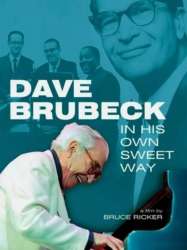 , 1h25
, 1h25Origin USA
Genres Documentary, Musical
Themes Films about music and musicians, Documentary films about music and musicians, Documentaire sur une personnalité, Jazz films, Musical films
Rating78%





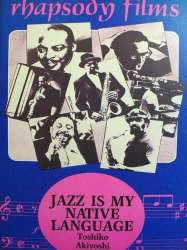 , 58minutes
, 58minutesOrigin USA
Genres Documentary, Musical
Themes Films about music and musicians, Documentary films about music and musicians, Documentaire sur une personnalité, Jazz films, Musical films

Sabbath in Paradise (2000)
, 1h25Genres Documentary, Musical
Themes Films about music and musicians, Films about religion, Documentary films about music and musicians, Documentaire sur une personnalité, Documentary films about religion, Documentary films about cities, Jazz films, Musical films, Films about Jews and Judaism
Actors John Zorn
Rating26%





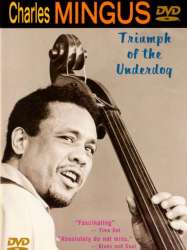
Genres Documentary, Musical
Themes Films about music and musicians, Documentary films about music and musicians, Documentaire sur une personnalité, Jazz films, Musical films
Rating72%





Charles Mingus narrates pieces of his own story. Born from a half black/half Swedish father and a half black/half Chinese mother (later having a half black/half Indian step-mother) Mingus tried to be all types of races but found he was a misfit that didn't belong anywhere; so he says he's just a negro. He sums this up stating, "In a society which sends messages that are racists capitalists, and have Judaeo-Christian ethic roots, the transmission of these messages to Black people can lead to socializing of their young with non-complementary values."

Sun Ra: A Joyful Noise (1980)
Directed by Robert Mugge
Genres Documentary, Musical
Themes Films about music and musicians, Documentary films about music and musicians, Documentaire sur une personnalité, Jazz films, Musical films
Rating72%





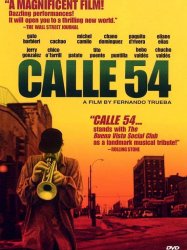
Calle 54 (2000)
, 1h45Directed by Fernando Trueba
Origin Espagne
Genres Documentary, Musical
Themes Films about music and musicians, Documentary films about music and musicians, Documentaire sur une personnalité, Musiques du monde, Jazz films, Musical films
Actors Gato Barbieri
Rating73%





Un film présentant les performances de plusieurs stars de la scène musicale Latin Jazz.
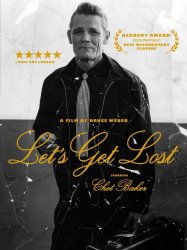
Let's Get Lost (1988)
, 2hDirected by Bruce Weber
Origin USA
Genres Musical theatre, Documentary, Musical
Themes Films about music and musicians, Documentary films about music and musicians, Documentaire sur une personnalité, Jazz films, Musical films
Actors Michael Peter Balzary, Chris Isaak, Lisa Marie, Rodney Harvey, Robbi Chong, Scott Coffey
Rating76%





A group of Baker fans, ranging from ex-associates to ex-wives and children, talk about the man. Weber’s film traces the man’s career from the 1950s, playing with jazz greats like Charlie Parker, Gerry Mulligan, and Russ Freeman, to the 1980s, when his heroin addiction and domestic indifference kept him in Europe. By juxtaposing these two decades, Weber presents a sharp contrast between the younger, handsome Baker — the statuesque idol who resembled a mix of James Dean and Jack Kerouac — to what he became, “a seamy looking drugstore cowboy-cum-derelict,” as J. Hoberman put it in his Village Voice review.
 Connection
Connection